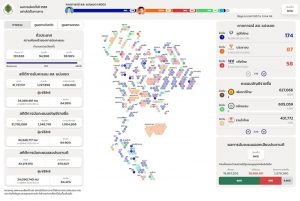
ศาลฎีกาแผนกคดีอาญาของผู้ดำรงตำแหน่งทางการเมืองพิพากษายกฟ้อง น.ส.ยิ่งลักษณ์ ชินวัตร อดีตนายกรัฐมนตรี คดีสั่งโยกย้ายนายถวิล เปลี่ยนศรี เมื่อ 12 ปีก่อน
ศาลฎีกาแผนกคดีอาญาของผู้ดำรงตำแหน่งทางการเมือง พิพากษายกฟ้อง น.ส.ยิ่งลักษณ์ ชินวัตร อดีตนายกรัฐมนตรี คดีสั่งโยกย้ายนายถวิล เปลี่ยนศรี เมื่อ 12 ปีก่อน ซึ่งก่อนหน้านั้นศาลฎีกาแผนกคดีอาญาฯ เลื่อนอ่านคำพิพากษาคดีนี้มาแล้ว 2 รอบ ถือเป็นการนัดอ่านรอบที่ 3 อดีตนายกฯ ยิ่งลักษณ์ที่เดินทางไปใช้ชีวิตในต่างแดนตั้งแต่ปี 2558 และเบี้ยวนัดศาลในการพิจารณาคดีครั้งแรกเมื่อเดือน พ.ย. 2565 จนถูกออกหมายจับเป็นใบที่ 3 ส่งนายนรวิชญ์ หล้าแหล่ง และนายวิญญัติ ชาติมนตรี ทนายจำเลย เป็นตัวแทนรับฟังคำพิพากษา
องค์คณะผู้พิพากษามีมติเสียงข้างมากเห็นว่า การกระทำความผิดตามฟ้อง นอกจากเจ้าพนักงานผู้มีหน้าที่โดยตรงในการปฏิบัติหน้าที่ต้องมีเจตนาในการปฏิบัติหน้าที่หรือละเว้นการปฏิบัติหน้าที่โดยมิชอบแล้ว เจ้าพนักงานผู้นั้นยังต้องมี “เจตนาพิเศษ” ในขณะกระทำความผิดเพื่อให้เกิดความเสียหายแก่ผู้หนึ่งผู้ใด หรือต้องมีเจตนาปฏิบัติหน้าที่หรือละเว้นการปฏิบัติหน้าที่โดยทุจริต ศาลพิจารณาแล้วเห็นว่า การกระทำของจำเลยในส่วนนี้ย่อมไม่อาจนำมารับฟังว่า จำเลยมีเจตนาทุจริตเพื่อประโยชน์ของ พล.ต.อ. พ. จำเลยจึงไม่มีความผิดฐานเป็นเจ้าพนักงานปฏิบัติหรือละเว้นการปฏิบัติหน้าที่โดยมิชอบ พิพากษายกฟ้อง เเละให้ถอนหมายจับคดีนี้
การตัดสินของศาลฎีกาแผนกคดีอาญาฯ ในวันนี้ ถือเป็นศาลที่ 3 ที่พิจารณาคดีโยกย้ายเลขาธิการ สมช. แต่ถือเป็นกรณีแรกที่คำพิพากษาออกมาเป็นคุณกับฝ่ายจำเลย หลังจากในปี 2557 ศาลปกครองสูงสุดมีคำสั่งให้เพิกถอนประกาศแต่งตั้งโยกย้ายนายถวิล โดยชี้ว่า “เป็นการใช้ดุลยพินิจโดยมิชอบ”เช่นเดียวกับศาลรัฐธรรมนูญที่มีมติเป็นเอกฉันท์ให้ความเป็นรัฐมนตรีของ น.ส.ยิ่งลักษณ์สิ้นสุดลงตามรัฐธรรมนูญ 2550 จากกรณีใช้ตำแหน่งหน้าที่เข้าไปก้าวก่ายแทรกแซงการแต่งตั้งโยกย้าย เพื่อเอื้อประโยชน์ให้แก่เครือญาติ
อย่างไรก็ตามศาลฎีกาแผนกคดีอาญาฯ ชี้ว่า “ไม่อาจนำเอาข้อเท็จจริงตามคำวินิจฉัยของศาลรัฐธรรมนูญและศาลปกครองสูงสุดดังกล่าวมาผูกพันให้ศาลนี้ต้องรับฟังตาม”
The Supreme Court’s Criminal Division of political office judges dismissing the case against Ms.Yingluck Shinawatra, former Prime Minister, ordered the transfer of Mr. Thawin Piewsri 12 years ago.
The Supreme Court’s Criminal Division of Political Positions, the ruling dismisses the case against Ms.Yingluck Shinawatra, former Prime Minister, ordered the transfer of Mr. Thawin Piewsri 12 years ago. Before that, the Supreme Court of the Criminal Division has postponed reading this case twice. It is the third reading appointment for former Prime Minister Yingluck who has been abroad since 2015 and defected to the court in his first trial in Nov.Y. 2565 until the 3rd arrest warrant was issued, sending Mr. Norawit Laosawang and Mr. Vinit Chatmontri, the defendant’s lawyer, to listen to the verdict.
The panel of judges decided that the prosecution’s offense, in addition to the officer directly responsible for performing his duties, must be intentional or absent from his duties. “Special intention” while committing an offense to harm any person or having to intentionally perform or refrain from performing his duties in corruption. The court considered that the defendant’s actions in this part could not be heard that the defendant had corrupt intentions for the benefit of the general.Police Department Therefore, the defendant is not guilty of being an operating officer or neglecting to perform his duties illegally. The judgment was dismissed and the arrest warrant for this case was withdrawn.
Today’s decision by the Supreme Court of Criminal Justice is the third court to consider the transfer of the Secretary-General. However, it is the first case that the verdict came out to you and the defendant. After 2014, the Supreme Administrative Court ordered to revoke the appointment of Mr. Thawin, pointing out that “it was an improper exercise of discretion” as well as the Constitutional Court unanimously resolved to be a minister of MPs.Yingluck’s termination under the Constitution 2007 was due to the use of his position as an intruder in the transfer appointment to benefit relatives.
How?According to the Supreme Court Criminal Division, “The facts of the Constitutional Court and the Supreme Administrative Court cannot be bound to be heard by this court.”
.











